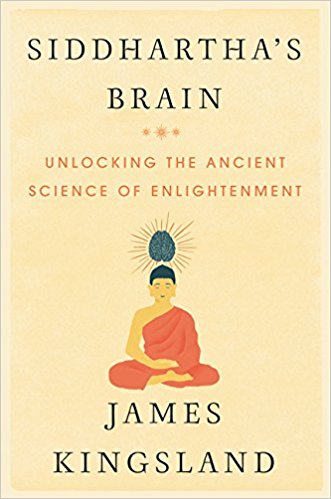Siddhartha’s Brain: Unlocking the Ancient Science of Enlightenment
Siddhartha’s Brain aims to show not only how science and spirituality interact, but also how they are dependent upon each other—and it very clearly accomplishes this goal. Author James Kingsland skirts narrative history, personal experiences, scientific discoveries, and spiritual practices of Buddhism and demonstrates how they interact and can work to the benefit of each other. Without stumbling into the pitfall of alienating scientific language, Kingsland is able to convey complicated ideas in a way that the average reader will feel comfortable tackling. Aside from explaining how these interactions work, Kingsland invites the reader to try for themselves with five guided meditation exercises that correspond with the information discussed in the proceeding chapter.
Aside from one college course on Transcendentalism that wrapped back around Herman Hesse’s Siddhartha and touched briefly on some of the superficial teachings of Buddhism and my own occasional dabbling in cruise ship yoga classes, I had little exposure to the teachings of Buddhism and I certainly had no exposure to how meditation might affect the human brain before this book. And while I haven’t been convinced to drop everything and devote my life to become a monk, I was nonetheless intrigued by the approach Kingsland took when discussing how meditation affects the human brain and what influence it may have on mental illnesses.
| Author | |
|---|---|
| Star Count | 4/5 |
| Format | Hard |
| Page Count | 352 pages |
| Publisher | William Morrow |
| Publish Date | 26-Apr-2016 |
| ISBN | 9780062403858 |
| Bookshop.org | Buy this Book |
| Issue | May 2016 |
| Category | Health, Fitness & Dieting |
| Share |








Reviews
There are no reviews yet.